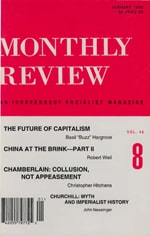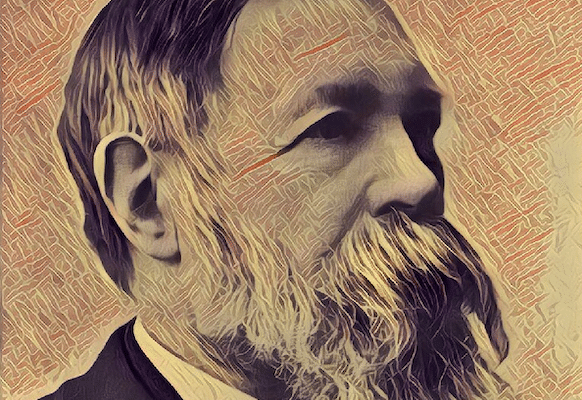was coeditor of Monthly Review from 1969 until 2006.
was a founding editor of Monthly Review (along with Leo Huberman) and coedited the magazine from 1949 until 2004.
This article originally appeared in the “Notes from the Editors” in the January 1995 issue of Monthly Review.

Monthly Review Volume 46 Number 8 January 1995
Toward the end of his life, Engels wrote: “It is a peculiarity of the bourgeoisie, distinguishing it from all other ruling classes, that there is a turning point in its development after which every increase in its means of power, that is in the first place every increase in its capital, only tends to make it more and more incapable of ruling politically.” Whatever may have been the validity of this statement a hundred years ago (Engels died in 1895), there can be no doubt that it applies with uncanny accuracy to the world of the late twentieth century.
Society is made up of parts that work together, sometimes more and sometimes less successfully, to produce its livelihood and reproduce itself. The master insight of Marxism is that during that period of human history that has been recorded (some four millennia) the decisive parts have been classes, one dominant and exploitative, the other dominated and productive. For most of this period both parts have been necessary: the brains above, the brawn below. They have also been in continuous conflict over the division of their joint product. The vision of Marxism has been that with increases in human knowledge and growth in the productivity of human labor, the necessity for this split tends to disappear. Brains and brawn tend to come together in the far more numerous productive class. From being a struggle over the division of a joint product, the conflict between the classes becomes increasingly concerned about what will be produced and for what ends. Making these decisions is surely what Engels had in mind when he spoke of “ruling politically.”

